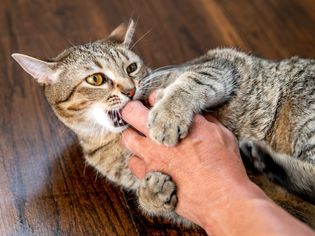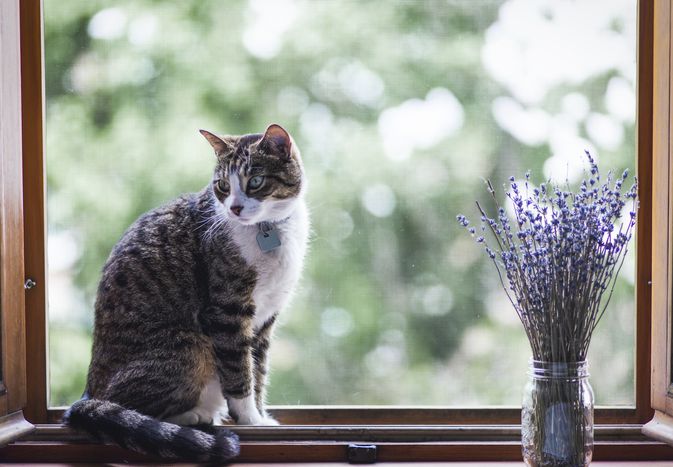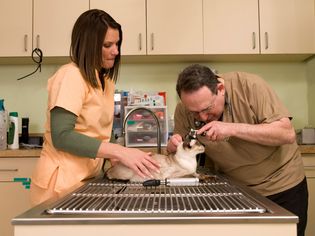
9 Types of Cat Litter to Help Your Feline Friend Clean Up
Cat litter is an essential supply for all indoor cats. While cats instinctively bury thei...
Vaccines are something new kitten owners are usually aware of due to the regular frequency of them but as cats age, vet visits and therefore vaccinations start to become less commonplace for cats. If your adult cat doesn't see the vet at least yearly, it can be problematic not only for the health of your cat but also because of legal reasons. Adult cats need a variety of vaccines and just because they don't need them as often as kittens doesn't mean they shouldn't still receive them.
Vaccinations are also known as and immunizations provide a cat's immune system with an increased capability of effectively fighting off diseases. Without vaccines, cats are not protected from a variety of potentially fatal diseases that they may come in contact with throughout their lives. One vaccine in particular is also needed due to state laws.
Kittens receive their first vaccines at around eight weeks of age and continue getting various vaccinations every few weeks until they are about four months old. After that, they won't need a vaccine until about a year later when they are an adult.
About a year after a kitten has received its last vaccines, it will be time to see the veterinarian for an annual check-up and its vaccination boosters. After that, your cat will still need an annual check-up but the core vaccines will usually only be given every three years. Depending on your cat's lifestyle and risk level, non-core vaccines may also be recommended by your veterinarian and these will still need to be received every year regardless of your cat's age. The exception to this is the rabies vaccine which may need to be given yearly depending on whether or not it is the recombinant or killed type of vaccine.
The American Association of Feline Practitioners (AAFP), the American Veterinary Medical Association (AVMA), and the American Animal Hospital Association (AAHA) recommend certain vaccines be given to all cats regardless of their exposure risk. These vaccines are typically given every three years to adult cats that received them as kittens. Because cats are prone to developing tumors at injection sites, vaccine frequency should be minimized but minimization should not be misinterpreted as avoidance. This is why it is important to follow your veterinarian's recommendation for the vaccination schedule that is best for your cat.
Depending on your cat's specific lifestyle, another vaccine may be recommended by your veterinarian. This vaccine is a non-core vaccine because not every cat needs it but if your cat does, it will be needed annually.
A few other vaccines were occasionally recommended in the past but are no longer commonplace in cats, even if they are at-risk. These include FIP, Bordatella, and Chlamydia vaccines.

Cat litter is an essential supply for all indoor cats. While cats instinctively bury thei...

A cat urinating outside the box can be marking behavior, where a cat feels the need to ma...

There are several basic kinds of aggression-based biting and scratching behaviors in cats...

Basil is one of the more commonly used and grown herbs in American homes. It’s used not...

Whether it’s spooky season, Thanksgiving, or just another day at home, you might be tem...

There are more questions about solving common cat litter box problems than any other cat ...

Snake plants, also called Mother-in-Law's Tongue, have gained popularity as one of th...

Lavender is a popular herbaceous plant praised for its aroma and calming properties in pe...

Cats are not low-maintenance pets. They require the same loving care as dogs, pet birds, ...
Comments on "The Average Adult Cat Vaccination Schedule" :